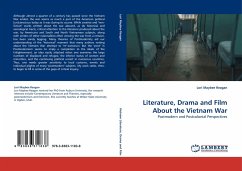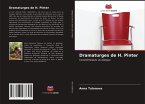The name of Harold Pinter (1930-2008) has become known to a wide circle of Russian literary critics thanks to the Nobel Prize for Literature, which he received in 2005. Despite the fact that in Western literary criticism there are already over 70 studies devoted to the peculiarities of Pinter's plays, in Russia such works are extremely rare. The book by A. N. Talanova is a thorough analysis of the peculiarities of Pinter's dialogue in the context of the dialogic perspectives which shape the modern humanitarian thinking, with a special focus on the linguistic and culturological specificities of Pinter's works, as well as on the problem of their translation into Russian. In addition, for the first time in Russian literary studies, an attempt is made to structure the available information on how H. Pinter transforms the main functions of dramatic dialogue








